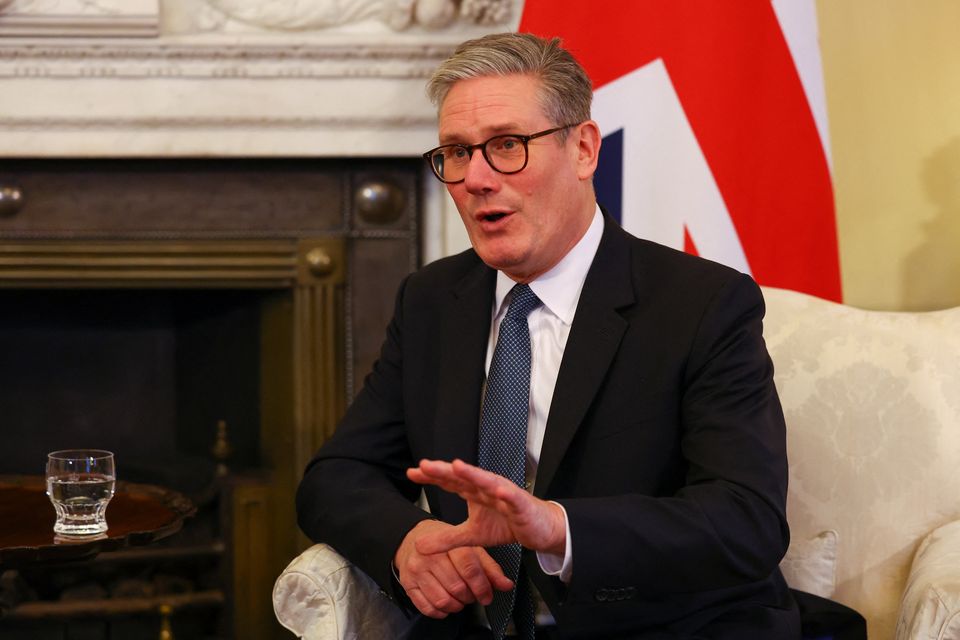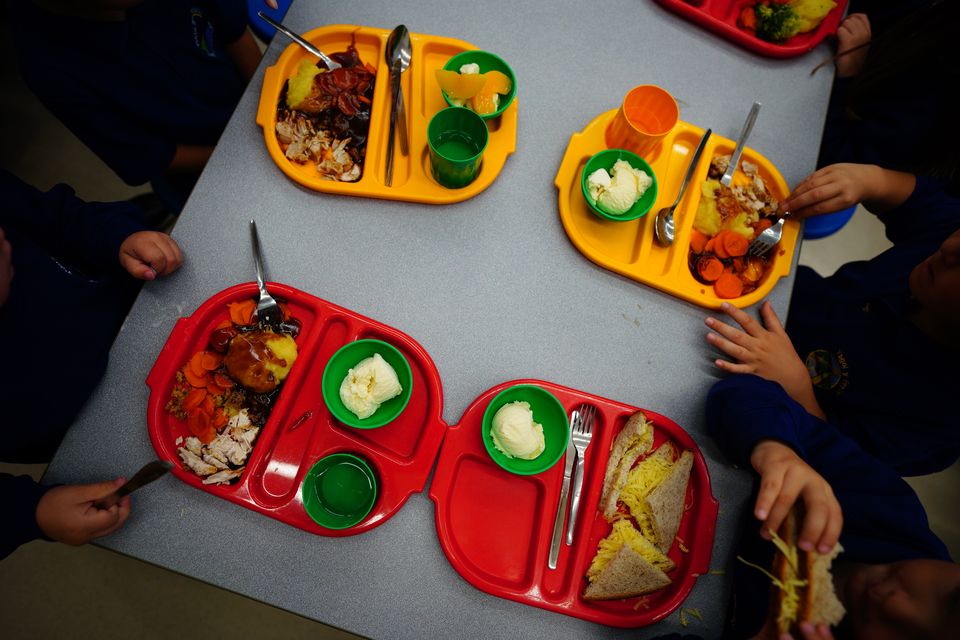Scotland’s First Minister has said his Government is acting on the two-child benefit cap because he “can’t wait” for Labour to axe the policy.
John Swinney said the pledge to mitigate the cap in Scotland has been made so he can fulfil a commitment to “leave no stone unturned in eradicating child poverty”.
He also hit out at Prime Minister Sir Keir Starmer, saying voters “reasonably could have expected” Labour to act on the issue after being voted into office in July.
Sir Keir has said the policy can only be ended when the fiscal conditions allow, with no indication when this might be.
Mr Swinney said: “We can’t wait for a Labour Government. I am acting to fulfil my commitment to leave no stone unturned in eradicating child poverty, that is what we’re going to do.”
Introduced by the Conservatives in 2017, the cap means families can only claim some benefits for their first two children, with no additional money awarded to them for subsequent children they may have.
The two-child cap on some benefits, introduced by the Tories, has remained in place under Sir Keir Starmer’s Labour Government (Hannah McKay/PA)
In the Scottish Budget announced to Holyrood on Wednesday, Finance Secretary Shona Robison condemned the “pernicious” policy as she told MSPs: “Be in no doubt – the cap will be scrapped.”
Speaking as he met parents and children at a nursery in Livingston, West Lothian, on Thursday, Mr Swinney said: “I think we reasonably could have expected a Labour Government to come in and lift the Tory two-child limit. But they have not done that.”
Mr Swinney said “preparatory steps” now need to be taken before the Scottish Government can mitigate the cap, but payments to families in Scotland are expected to begin in 2026 – potentially shortly before the Holyrood elections in May that year.
He rejected suggestions the move is linked to the election, in which the SNP will be fighting for votes with Labour.
Noting the Scottish Government is “reliant” on information from the UK Department for Work and Pensions (DWP) before it can act, the First Minister pledged to work with the DWP to bring in the policy as soon as possible.
He added: “If we can do it earlier than April 2026 we will do that, but it depends on the steps that are taken to get access to the data and to ensure we can be successful in implementing that programme.”
He said the measure is one of a “whole series” of policies from the Scottish Government aimed at tackling child poverty – with the First Minister having already declared this to be his key priority.
However he said “enormous inflationary pressures” mean his Government cannot yet meet its previous commitment to provide free school meals to all youngsters in primary school.
Children currently receive free lunches up to P5, with Mr Swinney saying his Government’s Budget for 2025-26 includes a funded commitment to expand this to P6 and P7 pupils whose families receive the Scottish child payment – which is awarded to low-income families north of the border.
He said: “The Government has had to take a decision to target that investment, instead of it being available to all P6 and P7 pupils we have focused that on those who are most at risk of living in poverty.
The Scottish Government is yet to meet a previous commitment to provide free school meals for all primary pupils (Ben Birchall/PA)
“We’ve had to do that because since the 2021 election we have faced enormous inflationary pressures in the public finances.”
He also insisted his Government is “trying to act to support people” despite claims that tax changes will have little impact on individuals.
The Budget will see the Scottish Government increase the threshold for basic and intermediate tax rates by 3.5% – a move which it said will see more of people’s money taxed at these lower rates.
However the Institute of Chartered Accountants of Scotland said someone earning £25,000 a year will “only be £5 better off” as a result.
Mr Swinney said the tax changes are “part of a package of measures to try to address the cost-of-living challenges people face”.
He added: “The Government is funding very significant increases in public sector pay, balanced and focused heavily towards those on lower incomes, to try to boost their incomes.
“Through a number of different interventions, on pay, on public expenditure and on social security, we are trying to act to support people, and to support families who face financial difficulty.”

